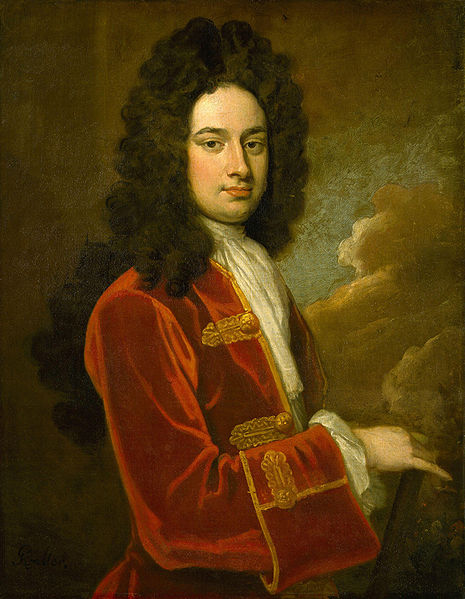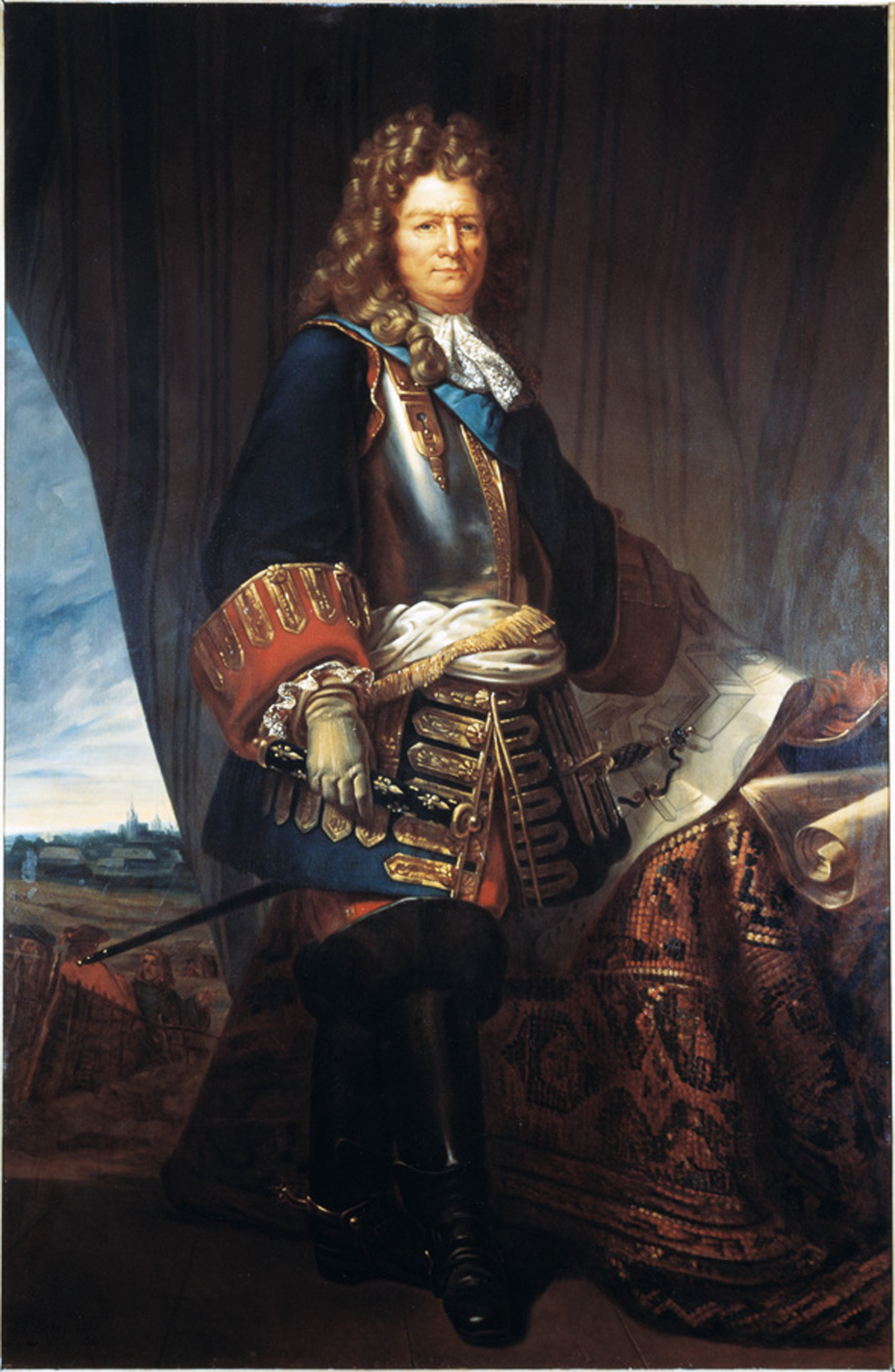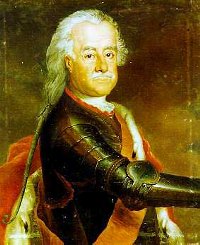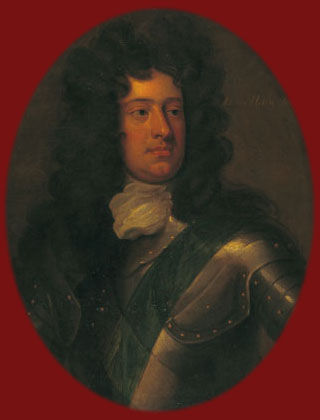The Child
 |
| Dore's depiction of Bluebeard and his wife |
There is no contemporary
portrait of the man who became a monster and was immortalised in the fairy tale
of Bluebeard by Charles Perrault. His
peers did their best to write him out of their shared history. The closest we
can get is an imaginary romanticised picture painted in the mid 1830’s.
Gilles de Rais[ii] was born as the result of an inheritance dispute. His
parents married to avoid the cost of a lengthy court case. Guy de Laval had
been due to inherit the fortune of one Jeanne Chabot. At her request he changed
his name to de Rais in September 1402. Madam Chabot then changed her mind and
left her monies to a distant female relative, married into the Craon family. Eventually, both parties being loathe to let the fortune
out of the family, a marriage was arranged between Guy de Rais and Marie de
Craon who married on 5th February 1404.
Gilles, born
in September 1405, was the heir to a large fortune, with lands in Brittany,
Thouars, Alençon, and Anjou; most of the properties were in the Loire region.
Like all progeny of the wealthy, Gilles was put out to a wet nurse Guillemette
la Drappière. Throughout his life Gilles was to look out for his wet-nurse and
his ‘frères de lait’. In 1407 Gilles’
brother René was born; the two were to be rivals throughout their lives and
René was to make many attempts to take control of the de Rais property.
Gilles was
handed over to his tutors at an early age to prepare him for his destiny. As a
landed noble he would need to be able to fulfil his feudal duties. He was
instructed in the military arts as well as Latin,
‘Showing a marked ability in
any activity he chose to interest himself in.’[iii]
The Inheritance
At the age
of ten Gilles came into his inheritance; Guy de Rais was gored by a boar while
out hunting. His long death[iv] gave Guy time to make a
will, leaving his sons to the care of an old friend. Jean de Craon was excluded
from looking after his grandchildren.
But within
months Jean de Craon had obtained custody of Gilles;
‘Gilles, a minor in years,
remained in the guardianship of the aforesaid Jehan de Craon, his maternal
grandfather who was old, ancient and of very great age.’[v]
Jean de
Craon’s son and heir Amaury was killed at the battle of Agincourt on October 25th, leaving Gilles in line to
inherit not only his parents’ fortune, but his grandfather’s as well. By the
end of the year de Craon had Gilles in his care.
Within
months de Craon was looking for an heiress to marry his grandson to. His first
attempt to obtain the daughter of the deceased Foulques de Hambuic was stymied
by the crown, who gave her guardianship to her aunt. De Craon then attempted a
match with Beatrice de Rohan, who was a niece of the Duke of Brittany, whom de Craon was cultivating.
Vannes city walls
The
marriage contract was signed at Vannes
on 28th November 1418, but the marriage never took place for unknown
reasons.
Feud in Brittany
It is
believed that Gilles was involved in the fighting that took place in a feud
between the Duke of Brittany and the Dauphin. Brittany had repeatedly promised
to send aid to the Dauphin in his fight against the English, but the troops had
never arrived. Charles organised for the Duke to be kidnapped and flung into
prison. His wife rallied support for her husband and de Craon and Gilles were
involved in some way. Gilles and de Craon had sworn an oath of allegiance to
the Montfort cause and the Duke stated after the event that he was grateful;The fighting was spread over a period of time and the de Rais lands were ravaged by their former allies, the Penthièvre family, who supported the Dauphin. When the Duke had been rescued he confirmed the grant of lands to Jean de Craon made by his wife on July 10th at Oudon[viii].
‘All the lands that the
malefactors and accomplices of Olivier de Blois, formerly Count of Penthièvre,
and Charles, his brother, had possessed.’[ix]
This grant
was revoked and de Craon was awarded monies in its place. Jean de Craon and his
grandson retired to Gilles’ estate of Champtocé[x], and held court there.
Gilles was allowed to satisfy his every whim and indulge in excessive eating
and drinking. It was de Craon who was the brains behind the scenes; Gilles
never developed any real political savoir-faire.
The Marriage
De Craon was
now once again on the hunt for a rich bride for his grandson. This time he
chose the daughter of neighbours, Catherine de Thouars. Catherine’s father was
away and his squire left the family domain to attend his master, dying in
Brabant. In de Thouars’ absence de Craon kidnapped the girl on 22nd
November 1420. Ten days later she and Gilles were married in a remote chapel,
by an obscure monk.
The reason
for the secrecy was that Catherine and Gilles were cousins to the eighth
degree, and therefore needed dispensation from the Pope, which de Craon,
relying on stealth to obtain this heiress for his grandson, had not applied
for.
The Bishop
of Angers, Hardouin de Bueil[xi] declared the marriage
null and void. De Caron sent an emissary to Rome to plead the young lovers’ case. For Gilles love did not
enter the equation, he was not interested in women. Catherine is unlikely to
have been in love either. No doubt de Craon’s emissary gave the Vatican a donation for their trouble.
Catherine’s
mother had her husband’s former squire negotiate a marriage settlement with de
Craon. It was agreed that if the papal dispensation was granted then Catherine
would receive one third of the de Thouars estates. The papal dispensation was
granted 24th April 1422, nearly eighteen months after the marriage.
Four weeks
later on the 22nd June the Bishop of Angers remarried the couple at
his castle at Chalonnes,
‘In the presence of the
vicar of Champtocé, two canons from Blaizon and a large and distinguished
congregation.’[xii]
The bishop
was another recipient of de Craon largesse.
The Family Dispute
During the
negotiation period de Craon’s wife died and he remarried. His new wife was
Catherine’s grandmother Anne de Sillé; her niece was married to René, Gilles’
brother, no doubt an attempt to obtain the remainder of the de Thouars lands. Dering
the same period Catherine’s mother also remarried to her husband’s former
squire Jacques Meschin.
The marriage
was not acceptable to de Craon, who arranged with the captain of the guard at
Tiffauges[xiii]
to carry off Beatrice de Montjean and her sister, allegedly being told to
‘Start moving or I’ll truss
you up like an old bundle and sling you across my horse.’[xiv].
Chateau de Tiffauges showing Gilles' coat of arms
Beatrice was
taken to Champtocé, where she was ordered by de Craon to sign over the castles
of Tiffauges[xv] and Poussanges[xvi]. She refused and Meschin
sent emissaries demanding the return of his wife. The emissaries were thrown
into the dungeons, but Beatrice was returned to her husband, after intervention
by Anne de Sillé.
The Parlement
at Poitiers ordered that Meschin and his wife choose one of the two castles and
Gilles would keep the other. They chose Poussanges, but Gilles refused to
return it. A royal messenger sent to ensure the handover was badly beaten; but
royal authority was much diminished with the English in charge of large swathes
of France.
De Craon was
unable to pass on to Gilles his sense of political astuteness and at the age of
twenty Gilles now decided to take the control of his enormous fortune[xvii] into his own hands.
Much to his grandfather’s horror Gilles started spending money like water. His
expenditure soon outstripped his income.
‘Gilles, when he reached
twenty or thereabouts, at the instigation of his servants and others who wished
to enrich themselves upon his goods, took upon himself the administration of
all his lands and estates and used them as he wished, taking no advice from his
grandfather.’[xviii]
De Craon was
still needed by Gilles for his introduction to the French court, but the
relationship between him and his grandfather was to diminish over the next
eight years, with the end result that de Craon left his sword and breastplate
to René, a symbol of his rejection of the man he had done so much to create.
Bibliography
The
Hundred Years War – Alfred Burne, Folio Society 2005
The Real
Bluebeard – Jean Benedetti – Sutton Publishing 2003
The Reign of
King Henry VI – RA Griffiths, Alan Sutton 1998
Joan of Arc
– Edward Lucie-Smith, Penguin 2000
www.wikipedia.en
[i]
It is possible that Gilles’ nickname came from a misunderstanding, the male
barbe bleu means a Barbary horse, which Gilles was known to ride; the feminine
form barbe bleue means blue beard.
[iii]
The Real Bluebeard - Benedetti
[iv]
There is no record of Marie de Craon’s death and there is no mention of her in
the historical record, apart from a reference to her marrying a Charles
d’Estouville after Guy’s death.
[v]
The Real Bluebeard - Benedetti
[vi]
Du Craon
[vii]
The Real Bluebeard - Benedetti
[viii] This grant was
rescinded by the Brittany parliament and replaced with an annual subsidy
[ix]
The Real Bluebeard - Benedetti
[x]
Where he had been born
[xi]
A relative of Catherine’s mother
[xii]
The Real Bluebeard - Benedetti
[xiii]
Catherine’s former home
[xiv]
The Real Bluebeard - Benedetti
[xv]
In the Vendée
[xvi]
In Limousin
[xvii]
He was worth more than the King of France by this time
[xviii]
The Real Bluebeard - Benedetti










_-_Google_Art_Project.jpg/455px-Hyacinthe_Rigaud_-_Louis_de_France,_duc_de_Bourgogne_(1682-1712)_-_Google_Art_Project.jpg)
_General_and_Diplomat.jpg)




